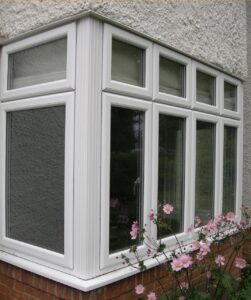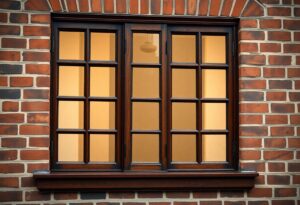Most people underestimate the effects of noise pollution on their overall health and well-being. Persistent exposure to loud sounds can lead to serious issues, including stress, anxiety, and even cardiovascular problems. However, you can take steps to mitigate these harmful effects, and one of the most effective solutions lies in your choice of windows. By understanding how noise can impact your life and exploring how specific window features can enhance your living environment, you can create a more peaceful and healthier home.
The Nature of Noise Pollution
For many, noise pollution has become an omnipresent feature of modern life, impacting our well-being. It encompasses unwanted or harmful sounds that disrupt the natural environment, primarily stemming from urban settings. Common sources include urban traffic, construction sites, and industrial activities, all of which contribute to the overall cacophony we experience daily. The characteristics of noise vary, with decibel levels often ranging from 50 dB in quiet areas to over 120 dB near busy roadways, while frequency ranges differ, affecting your health in numerous ways (understanding this can guide your efforts in reducing exposure).
Definition and Sources of Noise Pollution
Beside the evident disturbances, noise pollution encompasses a wide range of sounds that can affect both physical and mental health. It’s defined as any sound that is excessive, disruptive, or unwanted. Typical sources include the relentless sounds of urban traffic, the clattering of construction activities, and the din of industrial operations. These sounds can reach levels well above 85 dB, which is considered harmful over prolonged exposure, with varying frequencies that can irritate or stress you. It is necessary to identify these sources to mitigate their impact on your daily life.
Measurement of Noise Pollution
Around most urban areas, measuring noise pollution is key for effective management. Methods such as decibel meters are commonly employed to quantify sound intensity, while sound level mapping allows for comprehensive assessments over larger areas. Monitoring noise levels in residential and urban environments helps local authorities develop strategies to tackle excessive noise, improving overall quality of life for you and your community.
Noise pollution can have both immediate and long-term effects on health. Your risk of hearing loss, sleep disturbances, and increased stress levels can rise significantly with exposure to high noise levels. Regular monitoring using decibel meters can help identify peak noise times, enabling you to take steps to protect your health. The implementation of sound level mapping can provide data that informs community planning and noise regulation, fostering quieter and more peaceful living environments.
Health Effects of Noise Pollution
Some studies have highlighted the detrimental health impacts of noise pollution, linking it to issues such as increased stress levels, sleep disturbances, and a range of serious conditions. These effects can be particularly pronounced in vulnerable populations, including children and the elderly. By exploring strategies for Minimizing Noise Pollution with Special Window Treatments, you can create a healthier living environment and mitigate these risks.
Physical Health Risks
For those who experience prolonged exposure to noise pollution, the physical health risks can be significant. Research has shown a clear link between noise and a greater incidence of cardiovascular diseases, hypertension, and sleep disturbances. Vulnerable populations, such as older adults and those with pre-existing health conditions, may suffer more severe consequences. It’s crucial to take measures to reduce noise exposure and promote well-being.
Psychological and Cognitive Effects
At the same time, noise pollution can take a toll on your psychological and cognitive health. Increased stress levels and anxiety can arise, affecting both children and adults. Furthermore, noise can hinder your ability to learn and concentrate, impacting daily life and productivity. It’s vital to consider your mental well-being and the role that noise exposure plays in it.
Risks associated with noise pollution extend beyond mere annoyance; they can significantly affect your mental health. Studies indicate that persistent noise exposure can lead to chronic stress, which may heighten your susceptibility to developing anxiety disorders. In children, the ability to learn and concentrate can be diminished, impacting academic performance and overall development. Understanding these risks underscores the need for a quieter environment to promote a balanced and healthy lifestyle.

Mitigating Noise Pollution
Any effective approach to mitigating noise pollution involves a combination of sound-proofing technologies, architectural design, and the use of materials that absorb sound. You can significantly enhance your living environment by carefully selecting building materials and organising spaces strategically to minimise sound transfer, all while improving your overall health and well-being.
The Role of Architecture and Design
Around architectural designs play a vital role in influencing noise levels inside your home or workplace. Thoughtful layout choices, such as separating noisy areas from quiet ones, can greatly reduce noise infiltration. Furthermore, employing sound-absorbing materials, like acoustic panels and fibrous insulation, can enhance noise reduction effectiveness, creating a more peaceful atmosphere.
The Function of Windows in Noise Control
Mitigating noise pollution effectively can be achieved through high-quality windows. Technologies such as double-glazing and specialised soundproofing features block outdoor noise significantly, contributing to a quieter interior space. Research shows that double-glazed windows can reduce sound transmission by up to 50%, fostering a healthier environment for you (consider investing in windows with sound reduction ratings for optimal results).
With the right window options, you can directly combat noise pollution in your daily life. Soundproofing technologies, like double and triple glazing, enhance your home’s insulation against noise, proving especially effective in urban areas. A properly installed window can reduce outside noise disruptions, raising your quality of life and overall health (selecting windows with higher acoustic ratings is a key decision to make).
Case Studies and Evidence
Not all noise pollution is equal in its impact on health. Various case studies illustrate its detrimental effects:
- Sweden: A study found that long-term exposure to road traffic noise increases the risk of heart disease by 25%.
- London: The City of London reported a 25% increase in psychological issues linked to urban noise.
- New York: Residents living near airports experienced a 40% higher incidence of sleep disturbances.
Analysis of Urban Environments
The interaction between noise pollution and health outcomes in urban environments is evident. In cities such as Berlín, noise mitigation strategies led to a 30% reduction in residents reporting stress-related illnesses, and Tokyo implemented sound barriers which resulted in 15% improved sleep quality. (Investing in effective noise management is vital for urban health improvement.)
Residential Success Stories
At various locations, noise-reducing windows have transformed the quality of life for many residents. One homeowner in Manchester noted a reduction in noise levels by over 50% after installing new sound-proof windows, praising the calm environment. Before these changes, excessive noise contributed to regular sleep disruptions.
Evidence continues to accumulate regarding the effectiveness of noise mitigation in residential areas. In one notable instance, a family in Bristol reported a significant drop in anxiety levels after replacing their windows, along with testimonials highlighting their peace of mind. The reduction in noise levels from 75 dB to 30 dB demonstrates the transformative impact of sound-proof solutions, underscoring the importance of investing in architectural changes that enhance your living space and overall well-being.
Future Directions and Research
All current discussions surrounding noise pollution and health point towards the necessity of innovative solutions. Research into how How Acoustic Windows Reduce Impact of Noise Pollution is quickly becoming crucial. To enhance your understanding, future studies must focus on integrating acoustic technologies with environmental designs, enabling habitats that advocate for both health and tranquillity.
Emerging Technologies for Noise Reduction
Technologies such as acoustic barriers and smart materials are on the rise, aimed at significantly reducing noise pollution in urban areas. These innovative solutions can be cleverly incorporated into architectural designs that prioritise sound management, creating spaces where you can enjoy serenity amid the chaos of city life. (Prioritising sound management in architecture is vital for community wellness.)
Continued Research Needs
Any examination of noise pollution reveals gaps in existing research regarding its health impacts. Exploring relationships between noise levels and your well-being can unveil new insights, aiding the development of effective strategies to mitigate its effects. (Addressing these research needs could lead to healthier urban living.)
Noise pollution’s effects on your health encompass not just the immediate discomfort, but the long-term risks such as cardiovascular issues and sleep disturbances. Engaging in more comprehensive studies will help you and your community address these challenges and identify methods to reduce exposure. (Investing in targeted research could yield significant public health benefits.)
Policy Implications
Your understanding of noise pollution can lead to greater advocacy for effective government regulations that protect public health. Current regulations addressing noise pollution vary greatly in their scope and enforcement. You should consider supporting policy revisions that promote collaborative urban planning and design, ensuring quieter environments in both residential and urban settings. Effective policy could include stricter limits on noise emissions and incentives for soundproofing measures to enhance public well-being and comfort. (An important decision could involve the introduction of noise zoning laws in densely populated areas.)
Government Regulations and Initiatives
After examining existing regulations, you may find that many are insufficient in combating noise pollution effectively. Potential policy changes may involve not only strengthening current laws but also introducing new initiatives to mitigate noise in urban centres. Proactive measures, such as incentives for quieter machinery and sound barriers, could enhance urban living standards while ensuring the health of residents. Equally important, local governments could initiate community noise monitoring programmes to address specific issues.
Community Engagement and Awareness
One of the most effective ways to combat noise pollution is through community engagement. You can play an active role in public education campaigns that highlight the health effects of noise and the significance of noise reduction measures. Creating awareness among residents can foster a collective effort for initiatives aimed at minimising noise pollution. Collaborative efforts can lead to creative solutions that reflect your community’s unique needs.
Understanding the role of community engagement is vital in the fight against noise pollution. By educating yourself and others about its health impacts, you can spark conversations that drive community initiatives towards noise reduction. Forming local groups focused on improving noise control measures can lead to a stronger advocacy for regulatory changes. Your contribution to this dialogue can create a ripple effect, encouraging your neighbours to take action, thereby substantially improving your surroundings and quality of life.
Final Words
With these considerations, it is evident that noise pollution can significantly affect your health, leading to issues such as stress and sleep disturbances. Implementing soundproof windows can provide an effective barrier against external noise, enhancing your living environment and overall well-being. By investing in high-quality windows, you not only improve your comfort but also protect your health, allowing you to enjoy a more peaceful and restful home life. Take this step towards a quieter and healthier living space for you and your loved ones.
FAQ
Q: What is noise pollution?
A: Noise pollution refers to unwanted or harmful outdoor sound that disrupts the natural environment. This includes sounds from traffic, construction, and industrial activities. Prolonged exposure to such noise can lead to various health problems, including stress, hearing loss, and sleep disturbances.
Q: How does noise pollution affect health?
A: Noise pollution can lead to a range of health issues. It is linked to increased levels of stress, anxiety, and depression. Additionally, it can disrupt sleep patterns and lead to cardiovascular problems, reduced productivity, and impaired cognitive function over time.
Q: What are the signs of noise pollution-related health issues?
A: Common signs of health issues stemming from noise pollution include difficulty sleeping, increased irritability, chronic fatigue, frequent headaches, and persistent elevation in blood pressure. If these symptoms are consistent and worsen, it may indicate a need to assess noise exposure levels.
Q: How can windows help mitigate noise pollution?
A: Windows can significantly reduce noise pollution when designed and installed with soundproofing features. Double or triple glazing, for instance, acts as a barrier to outdoor noise, while the use of quality seals and materials can contribute to a quieter indoor environment.
Q: Are all types of windows equally effective against noise pollution?
A: Not all windows are equally effective. Windows that are specifically designed for soundproofing typically feature multiple panes of glass with varying thicknesses and specialised frames. The effectiveness of a window in reducing noise depends on its construction, materials, and installation quality.
Q: Is it possible to soundproof existing windows?
A: Yes, existing windows can be soundproofed using various methods, such as adding acoustic curtains, installing secondary glazing, or applying soundproofing film. These options can significantly reduce incoming noise without the need for total replacement.
Q: What other measures can complement window solutions in reducing noise pollution?
A: In addition to soundproof windows, other measures include sealing gaps and cracks, using heavy curtains or sound-absorbing materials within rooms, landscaping with trees or hedges to act as natural buffers, and considering sound barriers if living near roadways or construction areas.













